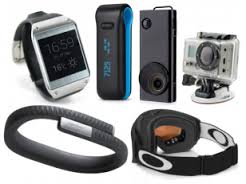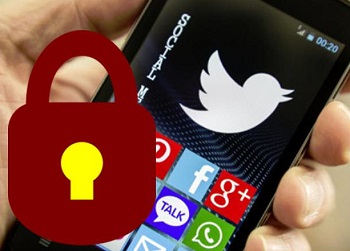A new forecast from IDC has predicted that smartwatches, fitness trackers and other wearables are rising fast.
This year, the International Data Corporation (IDC) reported a massive surge in the wearable technology market, which it said saw growth of 300 percent due to the sale of products such as the Fitbit Surge, Apple Watch and Pebble Time.
The IDC has released a report saying that by the end of 2016, worldwide shipments will hit 111.1 million.
That will mean that wearable technology will have seen an increase of 44 percent over the figure from 2015. That said, by the year 2019, shipments of wearables will have broken through the 214.6 million mark. According to the wearables team research manager at IDC, Ramon Llamas, “In a short amount of time, smartwatches have evolved from being extensions of the smartphone to wearable computers capable of communications, notifications, applications, and numerous other functionalities.”
It was also pointed out that wearable technology devices are experiencing a rapid evolution.
 Llamas went on to point out that just because they’re starting to sell and they will be seeing rapid growth over coming years, it doesn’t mean that the smartwatches we currently know will be the ones that actually take off over the next few years. He explained that “The smartwatch we have today will look nothing like the smartwatch we will see in the future.”
Llamas went on to point out that just because they’re starting to sell and they will be seeing rapid growth over coming years, it doesn’t mean that the smartwatches we currently know will be the ones that actually take off over the next few years. He explained that “The smartwatch we have today will look nothing like the smartwatch we will see in the future.”
He also underscored the forecast that the details of these devices will be quite different from what we currently see. The health sensors, cellular connectivity and even the wearables app market – which is already rapidly on the grow – will be ready to provide serious game changing evolutions in this market. Llamas feels that it will be in those areas that the gadgets will start to define themselves as having value and will become appealing to consumers.
While many of its predictions aligned well with other reports that have been issued by various prediction firms, the IDC report was somewhat different in that it has said that watchOS and Android Wear will be grabbing the top two spots (respectively). That said, it also stated that Tizen from Samsung will carve out an important segment of the market over the next four years, as well, to the point that it might swipe away some of the share that would otherwise have belonged to Android Wear.
The social network has warned some of its users of the chance for state-sponsored hackers accessing their data.
Twitter has now released an alert for some of the users of its social network, cautioning them of a certain online and mobile security issue that may have involved state-sponsored hackers attempting to access sensitive data from within their accounts.
This is the first time the company has issued this type of warning to any of its users.
Within the mobile security and online privacy notice, it indicated that as of that time, there had not been any indication that would suggest that the hackers had actually managed to access any of the sensitive information from within a “small group of accounts” that had been targeted during the attempts. That said, the letter didn’t provide any more information about the attack, nor did it suggest any potential suspects that were being sought as a part of the company’s investigation into this issue.
This mobile security and privacy notice is only the latest among several data breach concerns from state-sponsored organizations.
 Twitter is far from alone in the threat it has faced by way of cyberattacks. Many companies, government agencies and media outlets have all seen their fair share of data breaches from hackers. Several news sites have now been reporting on the warning that Twitter has issued. Among them, one was actually a recipient of the notice. It was a company called Coldhak, which is a nonprofit organization based in Winnipeg, Canada.
Twitter is far from alone in the threat it has faced by way of cyberattacks. Many companies, government agencies and media outlets have all seen their fair share of data breaches from hackers. Several news sites have now been reporting on the warning that Twitter has issued. Among them, one was actually a recipient of the notice. It was a company called Coldhak, which is a nonprofit organization based in Winnipeg, Canada.
That company’s notice explained that the cyber attackers could potentially have been seeking to breach mobile security or online privacy barriers in order to gain access to information such as IP addresses, email addresses and/or telephone numbers. That organization’s own Twitter account (@coldhakca) has since retweeted a several reports from other people who have also claimed to have received the notification from Twitter.
Neither Coldhak nor any of the other users have given any indication as to why they may have been targeted for this type of cyberattack. One of the directors of the nonprofit, Colin Childs, said that despite having received the notice from Twitter, his organization has detected “no noticeable impact of this attack.” Facebook and Google have also issued their own versions of notifications to let users know when state-sponsored attacks have targeted their accounts.
 Llamas went on to point out that just because they’re starting to sell and they will be seeing rapid growth over coming years, it doesn’t mean that the smartwatches we currently know will be the ones that actually take off over the next few years. He explained that “The smartwatch we have today will look nothing like the smartwatch we will see in the future.”
Llamas went on to point out that just because they’re starting to sell and they will be seeing rapid growth over coming years, it doesn’t mean that the smartwatches we currently know will be the ones that actually take off over the next few years. He explained that “The smartwatch we have today will look nothing like the smartwatch we will see in the future.”
 Twitter is far from alone in the threat it has faced by way of cyberattacks. Many companies, government agencies and media outlets have all seen their fair share of data breaches from hackers. Several news sites have now been reporting on the warning that Twitter has issued. Among them, one was actually a recipient of the notice. It was a company called Coldhak, which is a nonprofit organization based in Winnipeg, Canada.
Twitter is far from alone in the threat it has faced by way of cyberattacks. Many companies, government agencies and media outlets have all seen their fair share of data breaches from hackers. Several news sites have now been reporting on the warning that Twitter has issued. Among them, one was actually a recipient of the notice. It was a company called Coldhak, which is a nonprofit organization based in Winnipeg, Canada.